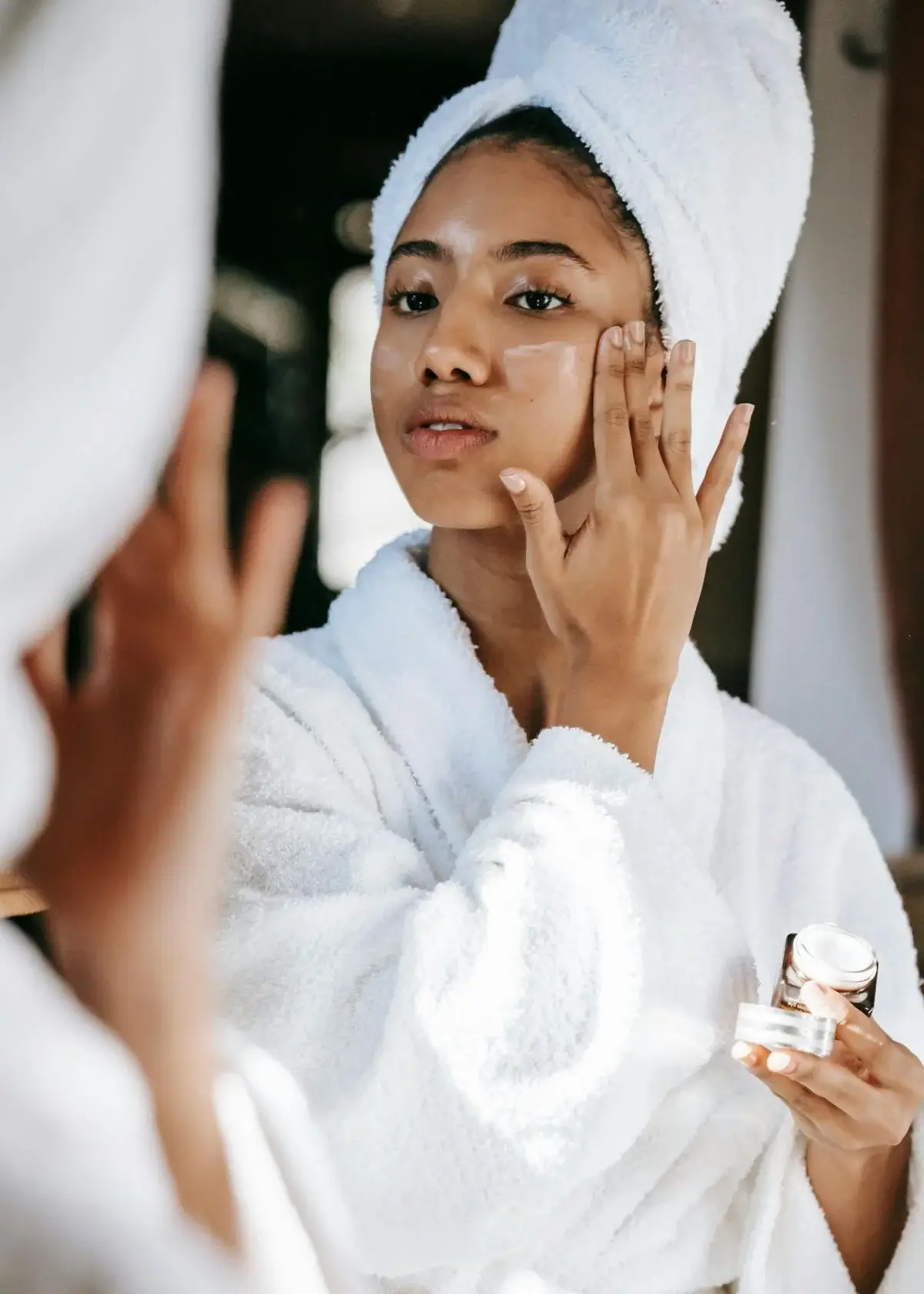As beauty enthusiasts, we constantly seek products to help us achieve skincare goals. One common concern that many of us face is uneven skin tone and the presence of dark spots. These issues can leave us feeling self-conscious and longing for a solution. This raises the question: Can anti-aging creams help improve uneven skin tone and dark spots? Let's explore this topic and uncover the truth behind these popular skincare products.
Understanding Uneven Skin Tone and Dark Spots
Uneven skin tone and dark spots can be caused by various factors, including sun damage, hormonal changes, age, and even genetics. Many people mistakenly believe these issues are solely related to aging, but that is not always true. It's important to understand the underlying causes to address them effectively.
Role of Anti-Aging Creams
Anti-aging creams are formulated with specific ingredients that target various signs of aging, including uneven skin tone and dark spots. These creams often contain ingredients such as retinol, vitamin C, niacinamide, and hydroquinone, which have been shown to have skin-brightening properties. They work by inhibiting melanin production, promoting cell turnover, and reducing the appearance of hyperpigmentation.
Efficacy of Anti-Aging Creams
Numerous scientific studies and research have been conducted to assess the effectiveness of anti-aging creams in improving uneven skin tone and dark spots. The results have shown that these creams can provide visible improvements when used consistently and as directed. However, it's important to note that individual results may vary, and it may take time to see significant changes in your skin.
Tips for Choosing the Right Anti-Aging Cream
When selecting an anti-aging cream to address uneven skin tone and dark spots, it's essential to consider a few key factors. Look for products that contain proven ingredients like retinol and vitamin C. Besides, consider your skin type and any specific concerns, such as sensitivity or dryness. It's always best to consult a dermatologist who can recommend the most suitable products for your unique needs.
Other Remedies for Uneven Skin Tone and Dark Spots
While anti-aging creams can be effective, it's important to remember that they are not the only solution for improving uneven skin tone and dark spots. Other treatments, such as chemical peels, laser therapy, and microneedling, may offer more intensive and targeted results. Further, lifestyle changes like wearing sunscreen daily, maintaining a healthy diet, and avoiding excessive sun exposure can contribute to overall skin health.
In the quest for a more even skin tone and diminished dark spots, anti-aging creams can play a valuable role. These creams, formulated with specific ingredients and backed by scientific research, can help improve the appearance of uneven skin tone and dark spots when used consistently and in conjunction with a comprehensive skincare routine. However, it's essential to manage expectations and remember that results may vary. Consulting with a dermatologist is always recommended for personalized advice and the most effective treatment options. Remember, achieving a radiant and even complexion is possible with the proper knowledge and commitment to skincare.
Uncover the results of our comprehensive research on the best anti-aging cream. Our analysis considered powerful ingredients, clinical effectiveness, and user testimonials to present you with the best option. Experience transformative benefits with our new favorite anti-aging cream, designed to rejuvenate and restore youthful radiance. Embrace a skincare routine that fights fine lines and wrinkles and promotes a radiant complexion. Indulge in the perfect solution for a more youthful, vibrant you! Click now to find the perfect solution and reveal a more youthful, vibrant you!
What lifestyle changes can complement the use of anti-aging creams?
Embracing a holistic lifestyle amplifies the transformative effects of anti-aging creams. Cultivate a nutrient-dense diet abundant in antioxidants like fruits and vegetables, fortifying skin health from within. Regular exercise promotes blood circulation, contributing to a radiant complexion. Prioritize hydration, aiming for optimal water intake, and ensure sufficient sleep for comprehensive well-being. Integrating stress management practices such as mindfulness or yoga adds an extra layer of resilience, synergizing with anti-aging creams for a mindful and all-encompassing approach to aging gracefully. The amalgamation of these lifestyle changes creates a harmonious symphony supporting anti-aging efforts.

What impact does sun protection have on anti-aging skincare?
Sun protection stands as the cornerstone, wielding a profound influence on the efficacy of anti-aging skincare. Safeguarding the skin against harmful UV rays becomes a non-negotiable strategy for preventing premature aging diminishing the risk of wrinkles, fine lines, and sunspots. Introducing a broad-spectrum SPF into the daily skincare routine is not just a protective measure; it acts as a proactive guardian, preserving skin elasticity and maintaining a luminous, youthful complexion. This diligent sun protection not only complements but synergistically amplifies the transformative effects of anti-aging creams, establishing an impenetrable defense against environmental aggressors.

What are the potential side effects of using anti-aging creams?
While anti-aging creams promise transformative potential, navigating potential side effects requires a reasonable and informed approach. Potential side effects, including skin irritation, redness, or dryness, may manifest, especially with potent ingredients like retinol. Recognizing that sensitivity varies from person to person, meticulous patch testing becomes a crucial step in gauging compatibility. The introduction of anti-aging products should be gradual, allowing the skin to acclimate and mitigating the risk of adverse reactions. Striking a delicate balance ensures that the benefits of anti-aging formulations are maximized while respecting the unique response of individual skin, fostering a nuanced and well-tolerated skincare regimen.

How do natural ingredients compare to synthetic ones in anti-aging products?
Delving into natural vs. synthetic ingredients in anti-aging products necessitates a nuanced exploration of efficacy and personal preference. Natural ingredients, such as botanical extracts, offer gentle alternatives, often well-tolerated by sensitive skin. Beyond their cosmetic benefits, they bring a holistic synergy with nature. On the flip side, synthetic counterparts may deliver targeted and precise results. The ideal formulation becomes a personalized decision, factoring in individual preferences, skin responsiveness, and desired outcomes. A discerning examination of ingredient lists ensures an informed and tailored choice, shaping a personalized and effective anti-aging skincare journey that resonates with individual values and preferences.

How should one address sensitivity issues when using anti-aging creams?
Navigating sensitivity issues with anti-aging creams demands a meticulous and personalized strategy. Opt for products explicitly formulated for sensitive skin, removing harsh chemicals that may exacerbate sensitivity. A gradual integration approach allows the skin to adapt, minimizing the risk of irritation. Conducting patch tests becomes imperative to assess compatibility. In cases of persistent sensitivity, seeking guidance from a dermatologist ensures personalized recommendations, facilitating the crafting of an anti-aging regimen that seamlessly aligns with individual skin needs and comfort levels. This collaborative approach acknowledges the unique intricacies of each skin type, fostering an anti-aging routine that harmonizes with individual sensitivities.
Should I adjust my skincare routine as I age and my skin changes?
Adapting the skincare routine to the evolving needs of aging skin is an indispensable strategy for effective and sustainable anti-aging care. Consider formulations addressing emerging concerns, such as increased hydration or targeted collagen support. Integrate treatments like serums or masks, adjusting their frequency based on the skin's evolving needs. Regular reassessment ensures that the skincare routine remains attuned to the dynamic nature of aging skin. Consulting skincare professionals for personalized guidance ensures a fluid and practical approach to anti-aging care that gracefully evolves with the changing requirements of the skin over time.







